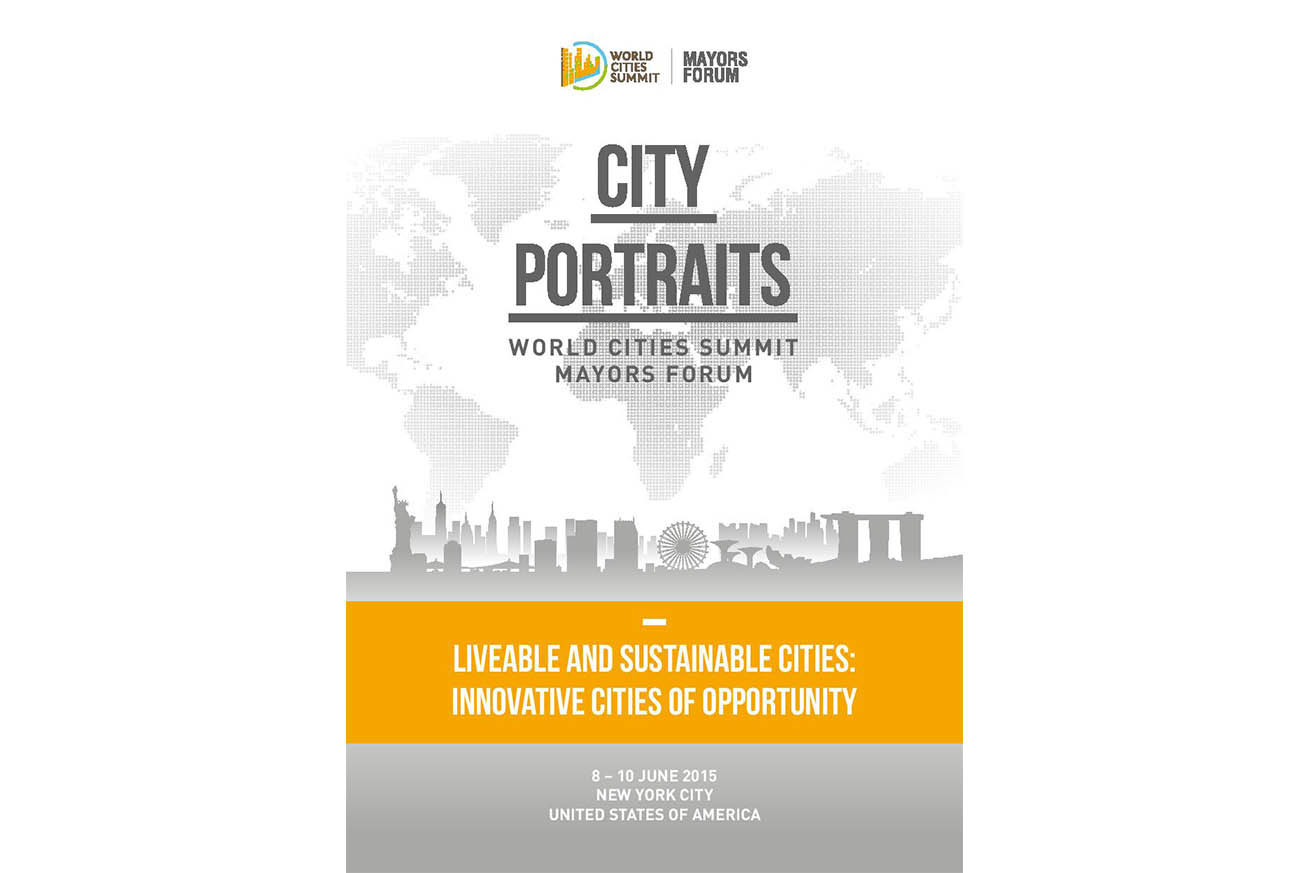Home >
ABOUT US >
Past Editions >
Mayors Forum 2015
Mayors Forum 2015
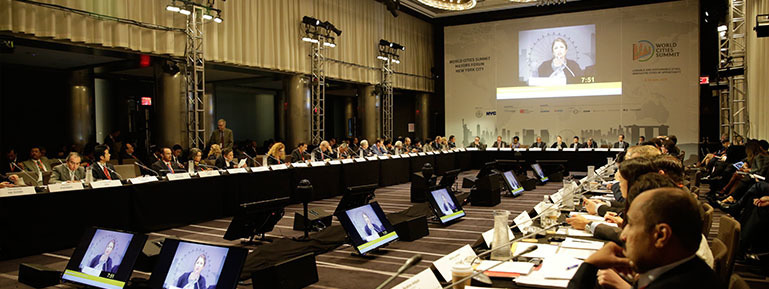
Innovation and opportunity were the buzzwords at the 6th World Cities Summit Mayors Forum held in New York City from 8–10 June 2015.
With 65 mayors and city leaders from 59 cities in attendance, the discussions focused on four main themes: housing and economic development, transport and mobility, sustainability and resilience, and education and competitiveness. The mayors and city leaders expressed their commitment to taking a longer-term view in planning for a more sustainable and resilient future and were united in wanting to adopt a more collaborative approach with the private sector and the people to enhance the quality of people’s lives.
A nine-point Mayors’ Declaration issued at the end of the meeting expressed their shared goals to work together towards building more equitable, liveable and sustainable cities. It also reaffirmed the value of sharing experiences and ideas about city leadership and management through platforms such as the WCS Mayors Forum.
View the WCS Mayors Forum 2015 Report
HOST CITY

New York City, the 2012 Lee Kuan Yew World City Prize Laureate, has set out a comprehensive blueprint to prepare the city for the future. Its OneNYC blueprint was based on ideas coming from thousands of New Yorkers and focused efforts on growth, equity, sustainability and resiliency to ensure that its fifth century will be its strongest yet.
New York City seeks to build a just, inclusive and equitable economy that offers well-paying jobs; reduce greenhouse gas emissions 80 percent by 2050; enhance resiliency to the impacts of climate change and eliminate long-term displacement from homes and jobs after shock events. It is strengthening homes, businesses, community-based organisations and public services to reduce the impacts of disruptive events and promote faster recovery.
YOUNG LEADERS SYMPOSIUM
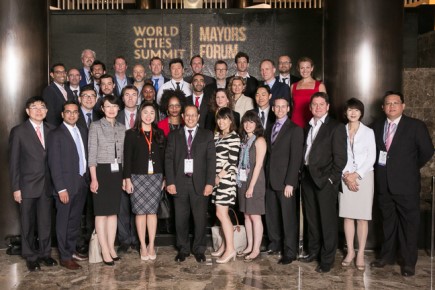
Thinking big, reaching wide and working smart were the three main areas of priority for cities that were discussed at the 2nd World Cities Summit Young Leaders Symposium. The Symposium opened with calls for collaboration on projects studying financing models by cities and integrating social protection and labour policies with urban planning.
Young leaders recognised:
- The need for integrating international and domestic priorities to meet basic needs and creating new opportunities for people.
- Narrowing inequality and reaching out to the community are key for social resilience.
- Cities must play a role in tackling global challenges such as climate change and terrorism.
- Cities must work better with the private sector to adopt new technology for becoming smart cities.
KEY INSIGHTS FROM THEMATIC DISCUSSIONS
Thematic Discussion 1: Housing and Economic Development
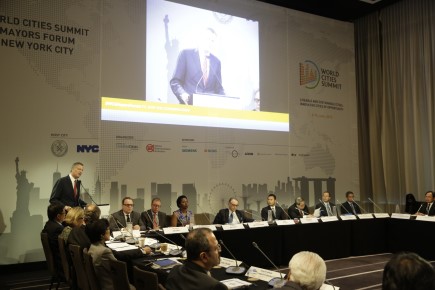
- City authorities must play a more proactive role in land, housing and labour markets, to meet the growing challenges of providing housing and economic development.
- Housing is integral to social inclusion; policies should address changing life-cycle needs and build a sustainable housing system, not just a market-oriented one.
- Better long-term planning can boost housing affordability by creating a more malleable land-use system to meet future challenges.
Thematic Discussion 2: Transportation and Mobility
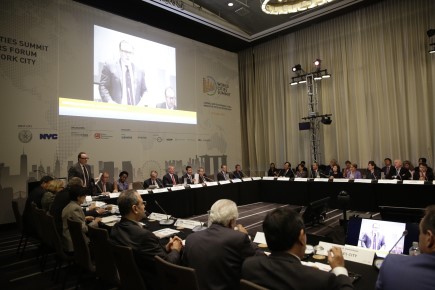
- Cities must become more flexible and innovative in adapting to new modes of mobility and accepting adjustments such as retrofitting, if needed.
- City authorities need bold leadership to shape transport demand and enhance overall mobility with measures such as car-free zones and charging for road usage.
- Having a good city mobility masterplan can help achieve the best possible economic, social and environmental outcomes.
Thematic Discussion 3: Sustainability and Resilience
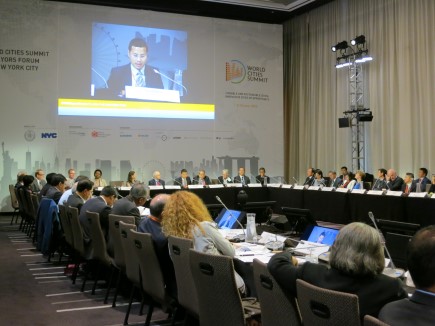
- A sustainable and resilient city can cope with natural and man-made problems while being innovative in generating opportunities, including creating jobs and attracting investment.
- Citizen involvement is a key factor in sustainability; digital communication is essential to facilitate greater collaboration with the people.
- The notion of resilience should be expanded to also cover social resilience.
Thematic Discussion 4: Education and Competitiveness
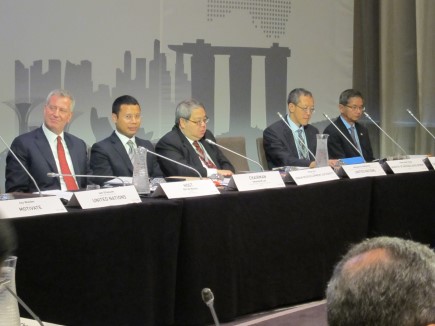
- Cities must recognise emerging threats and opportunities to address skills mismatches.
- Cities must take a holistic approach to education—from early childhood learning to narrowing the digital divide among seniors—and facilitate closer cooperation among employers, job-seekers and educators.
- Cities can build their economic resilience by growing new industrial sectors and building up the middle class through access to education and training.
